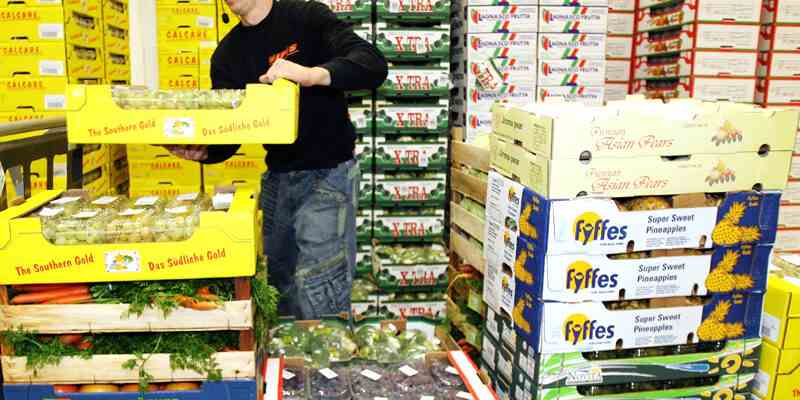Status: 12/15/2022 12:25 p.m
Wholesale prices rose at their slowest pace in more than a year in November. According to experts, this could be an indication that inflation will soon fall.
Wholesale price increases moderated further in November. Prices fell by 0.9 percent compared to October, according to the Federal Statistical Office. However, compared to the same month last year, there was still an increase of 14.9 percent.
However, the rate of increase is slowing down. The increase was 17.4 percent in October and 19.9 percent in September. The previous peak was reached in April with 23.8 percent. That was the strongest increase since statistics were introduced in 1962.
The wholesale price index is a leading indicator. It shows the price development in upstream areas, which is then later reflected in the sales prices of the buyers of the wholesale goods, i.e. the end consumer. Due to the currently high inflation, wholesale prices are currently attracting an unusually high level of attention, as the European Central Bank (ECB) is aligning its monetary policy accordingly.
Inflation peaked?
Against this background, the slowing pace of the increase is considered pleasing by experts: “A considerable decline,” commented economist Jens-Oliver Niklasch from Landesbank Baden-Württemberg (LBBW). “This means that there are gradually increasing signs that the high point in price increases is already behind us.”
Raw materials and intermediate products remain the main price drivers. A positive factor, however, was that mineral oil products such as petrol and heating oil were only 30.4 percent more expensive on average compared to November 2021. According to the latest data, the prices for these products fell by 4.4 percent compared to the previous month of October.
Wholesale prices for live animals (minus 5.1 percent) and old and residual materials (minus 4.1 percent) also fell compared to the previous month.
Inflation recently down
Consumer prices rose 10.4 percent in October, the most since 1951. In November, however, the inflation rate had eased to 10.0 percent. For the current December, Commerzbank expects a decline to 7.0 percent as a result of the government taking over the payments on account for natural gas.
In January, the inflation rate is likely to jump back up. “However, it will probably not be in double digits again,” said Commerzbank economist Ralph Solveen. “Because from January, electricity and gas price brakes will be taken into account in the price statistics.” The inflation rate is then estimated to rise to around nine percent.

